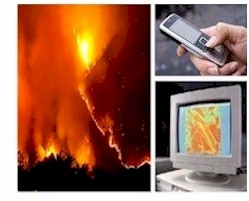Additional routines (used internally by the Autonomous Call
Center Acknowledgement client, AcsACK)
int
ACSACKReady(const char * _campaign, const int _noRecords,
const int _immediate, const int _startNo = 0);
int
ACSACKNotReady(const char * _campaign);
int
ACSACKProcessing(const char * _campaign);
int
ACSACKNotProcessing(const char * _campaign);
int
ACSACKSuccessful(const char * _campaign);
int
ACSACKNotSuccessful(const char * _campaign); // only call if NOT
// calling
//
ACSACKPhonesSend()
int
ACSACKReportSend(const char * _targetIPAddr,
const char * _campaign,
const char * _reportPath);
int ACSACKPhonesSend(const
char * _targetIPAddr,
const char * _campaign,
const char * _phonesPath);
int ACSAskReady(const char * _campaign, const int
_emergency);
This routine should only be used by DscACS to query a Pacer
Associate's DscACS, as the Associate will use a higher standard for determining
whether to reject the request or not.
When a normal client attempts a blast, DscACS will complete the blast at
all costs, even if it means trickling the calls out over a local or Associates'
meager number of dialer lines as a last resort. However, if the request has come from another DscACS, then the
Associate Pacer should refuse to accept the request so that the requester
DscACS may have the opportunity to move on to another, worthy, Associate (or
local dial). Also, the response to this
request does not include evaluation of Pacer Associate's list of
Associates. (Of course, if the
requester wishes to apply this higher standard when making the request, then by
all means use the routine, which returns the number of local lines available if
"ready").
One problem this creates is that in the case of the local
DscACS resorting to carrying out the request with a less-than-adequate number
of lines, whether local or (manual) Associate, then a Pacer Associate with more
lines might not be used, because it had earlier rejected the request because of
the higher standard. Therefore, a
second pass of these candidates will be made, except without using ACSAskReady(),
which "fools" the Associate Pacer into behaving like the primary
responder (including evaluating its list of Associates.)




 This section of our technical library presents information and documentation relating to Emergency Notification Systems and Disaster Recovery Applications.
If a severe snow storm hits your area, your community can be notified of school closings or event cancellations. Should an emergency arise in your community, our emergency broadcast phone service can deliver large volumes of phone messages quickly using thousands of digital and analog phone lines simultaneously. If a dangerous chemical spill occurs in your community, you can target specific areas to call. In the event of a blizzard, wild fire or devastating flood, your community can be notified quickly given specific instructions if an evacuation is required using our emergency broadcasting service.
This section of our technical library presents information and documentation relating to Emergency Notification Systems and Disaster Recovery Applications.
If a severe snow storm hits your area, your community can be notified of school closings or event cancellations. Should an emergency arise in your community, our emergency broadcast phone service can deliver large volumes of phone messages quickly using thousands of digital and analog phone lines simultaneously. If a dangerous chemical spill occurs in your community, you can target specific areas to call. In the event of a blizzard, wild fire or devastating flood, your community can be notified quickly given specific instructions if an evacuation is required using our emergency broadcasting service.
 With our emergency notification phone service, you can broadcast warning messages to thousands of households in your community warning of catastrophic disasters including forest fires.
Messages can be simultaneously delivered in just minutes using our network of phone systems and services. Pre-recorded warning messages can be played giving households information regarding the forest fires location and whether a community evacuation is planned or necessary. You can send a broadcast warning to specific neighborhoods or communities in the event of a wildfire and provide priority delivery of these messages to those nearest the fire danger. Multiple messages can be delivered to different members of the community based upon proximity to the blaze. Calls can be directed to operators that are standing by to handle special individual emergencies.
Messages can also be broadcast seeking volunteers or special assistance from emergency personnel.
With our emergency notification phone service, you can broadcast warning messages to thousands of households in your community warning of catastrophic disasters including forest fires.
Messages can be simultaneously delivered in just minutes using our network of phone systems and services. Pre-recorded warning messages can be played giving households information regarding the forest fires location and whether a community evacuation is planned or necessary. You can send a broadcast warning to specific neighborhoods or communities in the event of a wildfire and provide priority delivery of these messages to those nearest the fire danger. Multiple messages can be delivered to different members of the community based upon proximity to the blaze. Calls can be directed to operators that are standing by to handle special individual emergencies.
Messages can also be broadcast seeking volunteers or special assistance from emergency personnel.